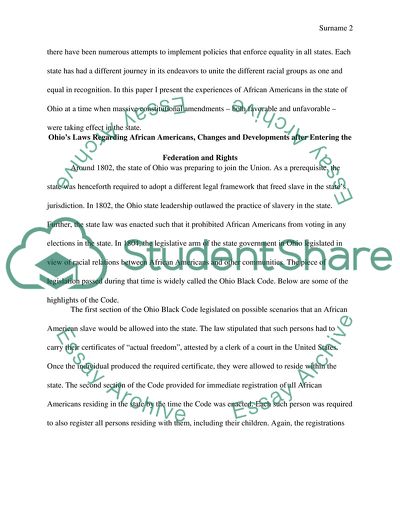Cite this document
(Experiences of African Americans during the Civil War Report Example | Topics and Well Written Essays - 1500 words, n.d.)
Experiences of African Americans during the Civil War Report Example | Topics and Well Written Essays - 1500 words. https://studentshare.org/history/1848657-the-african-american-experience-in-ohio-1803-1865
Experiences of African Americans during the Civil War Report Example | Topics and Well Written Essays - 1500 words. https://studentshare.org/history/1848657-the-african-american-experience-in-ohio-1803-1865
(Experiences of African Americans During the Civil War Report Example | Topics and Well Written Essays - 1500 Words)
Experiences of African Americans During the Civil War Report Example | Topics and Well Written Essays - 1500 Words. https://studentshare.org/history/1848657-the-african-american-experience-in-ohio-1803-1865.
Experiences of African Americans During the Civil War Report Example | Topics and Well Written Essays - 1500 Words. https://studentshare.org/history/1848657-the-african-american-experience-in-ohio-1803-1865.
“Experiences of African Americans During the Civil War Report Example | Topics and Well Written Essays - 1500 Words”. https://studentshare.org/history/1848657-the-african-american-experience-in-ohio-1803-1865.


